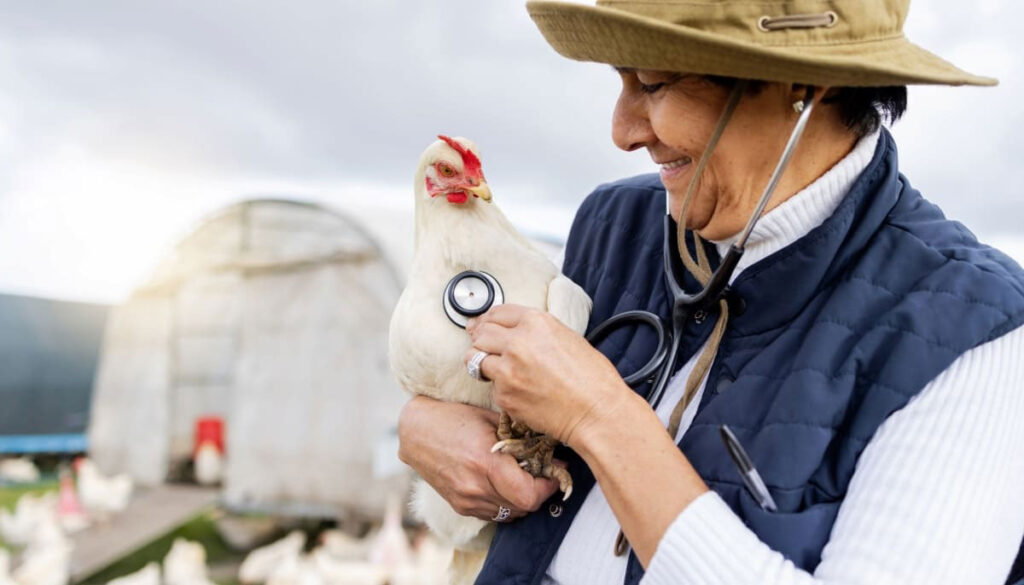
Chickens are not just farm animals; they’re beloved companions for many, providing not only eggs but also joy and companionship. However, like any living creature, chickens can fall ill. Understanding common chicken ailments and how to prevent them is crucial for the well-being of your feathered friends. Here, we delve into the basics of chicken health to help you keep your flock in top condition.
Recognizing Common Ailments
1. Respiratory Issues:
Respiratory issues are among the most common health concerns that can affect chickens. These issues can arise due to various factors such as poor ventilation, overcrowding, exposure to drafts, and infectious agents. Understanding the signs, causes, and prevention strategies for respiratory problems is crucial for maintaining the health and well-being of your flock.
Signs of Respiratory Issues:
- Labored breathing
- Wheezing or coughing
- Nasal discharge
- Sneezing
- Gurgling sounds when breathing
- Decreased activity and appetite
Common Causes:
- Bacterial Infections: Pathogens such as Mycoplasma gallisepticum and Infectious Coryza can cause respiratory infections in chickens.
- Viral Infections: Diseases like Infectious Bronchitis Virus (IBV) and Newcastle Disease Virus (NDV) can lead to respiratory symptoms.
- Fungal Infections: Aspergillosis, caused by the fungus Aspergillus, can affect the respiratory system when chickens inhale spores from contaminated bedding or feed.
- Poor Ventilation: Inadequate airflow in the coop can lead to a buildup of ammonia and other harmful gases, which can irritate the respiratory tract.
- Stress Factors: Overcrowding, sudden changes in temperature, and poor nutrition can weaken the immune system, making chickens more susceptible to respiratory infections.
Prevention Strategies:
- Good Ventilation: Ensure proper ventilation in the coop to maintain fresh air circulation and reduce the buildup of moisture and harmful gases.
- Biosecurity Measures: Implement strict biosecurity protocols to prevent the introduction and spread of infectious agents into your flock.
- Quarantine New Birds: Quarantine new birds before introducing them to your existing flock to prevent the spread of diseases.
- Clean Environment: Keep the coop clean and dry, regularly removing soiled bedding and feces to reduce the risk of respiratory irritants.
- Vaccination: Follow recommended vaccination schedules to protect against common respiratory diseases such as Infectious Bronchitis and Newcastle Disease.
- Nutritional Support: Provide a balanced diet with adequate vitamins and minerals to support a strong immune system in chickens.
Treatment:
- Consult with a veterinarian for proper diagnosis and treatment of respiratory infections in chickens. Depending on the specific cause, treatment may involve antibiotics, antifungal medications, or supportive care to alleviate symptoms and promote recovery.
By understanding the signs, causes, and prevention strategies for respiratory issues in chickens, you can effectively safeguard the health of your flock and minimize the risk of outbreaks. Regular monitoring, proper management practices, and prompt veterinary intervention are essential components of maintaining optimal chicken health and welfare.
2. Parasites:
Parasites pose a significant threat to the health and well-being of chickens, causing a range of issues from irritation and discomfort to serious health problems and reduced egg production. Understanding the common parasites that affect chickens, their signs, and prevention strategies is essential for maintaining a healthy flock.
Common Parasites Affecting Chickens:
- External Parasites:
- Mites: Common mites that affect chickens include the Northern Fowl Mite, Red Mite, and Scaly Leg Mite. These parasites feed on the blood of chickens and can cause irritation, feather loss, and anemia.
- Lice: There are several species of lice that infest chickens, including the shaft louse and the body louse. Lice feed on the feathers, skin, and blood of chickens, leading to irritation, feather damage, and reduced egg production.
- Fleas: Fleas can also infest chickens, causing itching, irritation, and discomfort.
- Internal Parasites:
- Worms: Common intestinal worms that affect chickens include roundworms, tapeworms, and gapeworms. These parasites can cause poor growth, diarrhea, weakness, and even death if left untreated.
Signs of Parasitic Infestation:
- Feather loss or damage
- Irritated or pecked skin
- Decreased egg production
- Weight loss or poor growth
- Pale comb and wattles (sign of anemia)
- Lethargy and weakness
- Visible parasites on the skin or feathers
Prevention and Control Strategies:
- Regular Cleaning and Maintenance: Keep the coop clean and dry, regularly removing soiled bedding and debris to reduce the risk of parasite infestations.
- Dust Baths: Provide chickens with access to dust baths containing diatomaceous earth or wood ash, which can help control external parasites by suffocating and drying out mites and lice.
- Quarantine New Birds: Quarantine new birds before introducing them to the existing flock to prevent the spread of parasites.
- Sanitation Practices: Practice good sanitation measures, such as cleaning and disinfecting equipment, feeders, and waterers regularly.
- Regular Health Checks: Inspect chickens regularly for signs of parasites and seek veterinary advice if infestations are suspected.
- Parasite Control Products: Use appropriate parasite control products, such as topical treatments, dusts, or dewormers, as recommended by a veterinarian.
Treatment:
- Treatment for parasitic infestations may involve the use of topical treatments, dusts, or oral dewormers, depending on the type of parasite and severity of the infestation. Consult with a veterinarian for proper diagnosis and treatment.
By implementing effective prevention and control measures, you can help protect your chickens from parasitic infestations and ensure their health and well-being. Regular monitoring, proper management practices, and prompt intervention are essential for maintaining a healthy flock.
3. Egg-related Problems:
Egg-related problems can occur in backyard chicken flocks, impacting egg quality, production, and the overall health of the birds. Understanding the common egg-related issues, their causes, and prevention strategies is crucial for maintaining a successful egg-laying operation.
Common Egg-related Problems:
- Soft-shelled Eggs: Soft-shelled eggs lack the hard calcium carbonate shell, making them fragile and prone to breakage.
- Thin-shelled Eggs: Thin-shelled eggs have shells that are weaker than normal, increasing the risk of breakage and susceptibility to damage.
- Misshapen Eggs: Misshapen eggs may have irregular shapes, sizes, or abnormalities, such as wrinkles or rough textures.
- Egg Binding: Egg binding occurs when a hen is unable to lay an egg, leading to a blockage in the reproductive tract.
- Double Yolk Eggs: Double yolk eggs contain two yolks within a single shell, which can occur due to hormonal imbalances or genetic factors.
- Egg Eating: Egg eating behavior can develop in chickens, where they consume their own eggs, leading to reduced egg production and potential nutritional deficiencies.
Causes of Egg-related Problems:
- Nutritional Deficiencies: Inadequate levels of calcium, vitamin D, or other essential nutrients in the diet can lead to problems with eggshell quality.
- Stress: Environmental stressors such as overcrowding, poor ventilation, or sudden changes in temperature can disrupt the egg-laying process.
- Disease or Infection: Certain diseases or reproductive disorders can affect the reproductive health of hens, leading to egg-related issues.
- Genetics: Some breeds or individual hens may be more prone to producing misshapen or double yolk eggs due to genetic factors.
- Age: Older hens may experience declines in egg quality and production as they age, especially if they are not provided with optimal nutrition and care.
Prevention Strategies:
- Balanced Diet: Provide a balanced diet formulated specifically for laying hens, with adequate levels of calcium, protein, vitamins, and minerals.
- Calcium Supplementation: Offer sources of supplemental calcium, such as crushed oyster shells or limestone, to ensure hens have sufficient calcium for eggshell formation.
- Stress Reduction: Minimize stressors in the environment by providing ample space, proper ventilation, and comfortable nesting areas for hens.
- Regular Health Checks: Monitor the health of your flock regularly and seek veterinary advice if any signs of illness or reproductive problems are observed.
- Egg Collection: Collect eggs frequently to prevent hens from developing egg eating habits and to reduce the risk of eggs becoming dirty or damaged.
Treatment:
- Treatment for egg-related problems depends on the specific issue and underlying cause. Consult with a veterinarian for proper diagnosis and treatment recommendations tailored to your flock’s needs.
By implementing proactive management practices and addressing potential risk factors, you can minimize egg-related problems in your backyard chicken flock and ensure a consistent supply of high-quality eggs. Regular monitoring, proper nutrition, and attentive care are essential for promoting optimal egg production and the overall health and well-being of your birds.
4. Nutritional Deficiencies:
Nutritional deficiencies can significantly impact the health, growth, and productivity of backyard chicken flocks. Providing a well-balanced diet with essential nutrients is vital for ensuring optimal health and performance. Understanding common nutritional deficiencies in chickens, their signs, and prevention strategies is essential for maintaining a healthy and thriving flock.
Common Nutritional Deficiencies:
- Calcium Deficiency: Insufficient calcium in the diet can lead to thin or soft eggshells, poor egg quality, and increased risk of egg binding in laying hens.
- Protein Deficiency: Low protein intake can result in poor growth, reduced muscle development, feather abnormalities, and decreased egg production in laying hens.
- Vitamin Deficiencies: Deficiencies in vitamins such as vitamin A, vitamin D, vitamin E, and the B-complex vitamins can lead to various health issues, including poor growth, skeletal abnormalities, reduced immune function, and reproductive problems.
- Mineral Deficiencies: Lack of essential minerals such as phosphorus, potassium, magnesium, and zinc can result in skeletal abnormalities, reduced egg production, and overall poor health.
Signs of Nutritional Deficiencies:
- Poor growth or stunted development
- Reduced egg production or poor egg quality
- Soft or thin eggshells
- Feather abnormalities or loss
- Skeletal deformities or weak bones
- Lethargy or weakness
- Poor immune function and increased susceptibility to diseases
Prevention Strategies:
- Quality Feed: Provide a well-balanced commercial feed formulated specifically for the age and life stage of your chickens, ensuring it contains the appropriate levels of protein, vitamins, minerals, and calcium for optimal health and productivity.
- Supplementation: Offer supplemental sources of calcium, such as crushed oyster shells or limestone, to laying hens to ensure adequate eggshell formation.
- Access to Forage: Allow chickens access to forage areas where they can peck and scratch for insects, plants, and other natural sources of nutrients.
- Fresh Water: Ensure chickens have access to clean, fresh water at all times, as water is essential for proper digestion, nutrient absorption, and overall health.
- Regular Monitoring: Monitor the health and condition of your flock regularly, observing for any signs of nutritional deficiencies or health issues, and adjust their diet or management practices accordingly.
- Consultation with a Veterinarian: Seek veterinary advice if you suspect nutritional deficiencies or health problems in your flock, as they can provide guidance on appropriate dietary adjustments or supplementation.
Treatment:
- Treatment for nutritional deficiencies involves correcting the imbalances in the diet through adjustments to the feed or supplementation with specific nutrients as recommended by a veterinarian.
By prioritizing proper nutrition and implementing proactive management practices, you can help prevent nutritional deficiencies in your backyard chicken flock and promote their overall health, growth, and productivity. Regular assessment of their diet, access to quality feed and forage, and attentive care are essential for maintaining a healthy and thriving flock.
5. Heat Stress:
Heat stress is a significant concern for backyard chicken owners, especially during hot summer months or in regions with high temperatures and humidity levels. Chickens are particularly vulnerable to heat stress due to their limited ability to regulate body temperature. Understanding the signs, causes, and prevention strategies for heat stress is crucial for ensuring the well-being and survival of your flock during periods of extreme heat.
Signs of Heat Stress:
- Panting or open-mouth breathing
- Wings held away from the body
- Lethargy or weakness
- Reduced appetite and water intake
- Drooping comb and wattles
- Diarrhea or watery droppings
- Loss of coordination or collapse
Causes of Heat Stress:
- High Temperatures: Exposure to high ambient temperatures, especially when combined with high humidity, can quickly lead to heat stress in chickens.
- Poor Ventilation: Inadequate airflow in the coop or lack of shade in the outdoor environment can exacerbate heat stress by trapping heat and humidity.
- Overcrowding: Overcrowded living conditions can increase body heat production and limit chickens’ ability to find relief from the heat.
- Lack of Shade: Insufficient shade or shelter from direct sunlight can expose chickens to prolonged periods of heat without relief.
- Dehydration: Inadequate access to clean, fresh water can lead to dehydration, further exacerbating heat stress.
Prevention Strategies:
- Provide Adequate Ventilation: Ensure proper ventilation in the coop by opening windows, adding vents, or using fans to promote airflow and reduce heat buildup.
- Shade and Shelter: Provide ample shade in the outdoor environment using natural shade from trees or artificial shelters such as awnings or umbrellas.
- Access to Fresh Water: Ensure chickens have access to clean, fresh water at all times, and consider adding electrolytes to the water during periods of extreme heat to help replenish lost minerals and support hydration.
- Cooling Measures: Use evaporative cooling techniques such as misting systems, shallow water baths, or frozen water bottles placed in the coop to help lower ambient temperatures and provide relief from the heat.
- Reduce Stocking Density: Avoid overcrowding by providing adequate space per bird to reduce heat stress and allow chickens to spread out and dissipate body heat more effectively.
- Adjust Feeding Schedule: Feed chickens during the cooler parts of the day to minimize heat production from digestion.
- Monitor Behavior: Regularly monitor chickens for signs of heat stress and take immediate action if any signs are observed, such as providing additional shade, cooling measures, or moving birds to a cooler location.
Treatment:
- If heat stress is suspected, immediately move affected chickens to a cooler, shaded area, offer cool water for drinking, and provide supportive care as needed. Consult with a veterinarian if severe symptoms persist or if additional treatment is required.
By implementing proactive management practices and providing appropriate care during periods of extreme heat, you can help minimize the risk of heat stress in your backyard chicken flock and ensure their health and well-being during hot weather conditions. Regular monitoring, proper ventilation, access to shade and water, and attentive care are essential components of heat stress prevention and management.
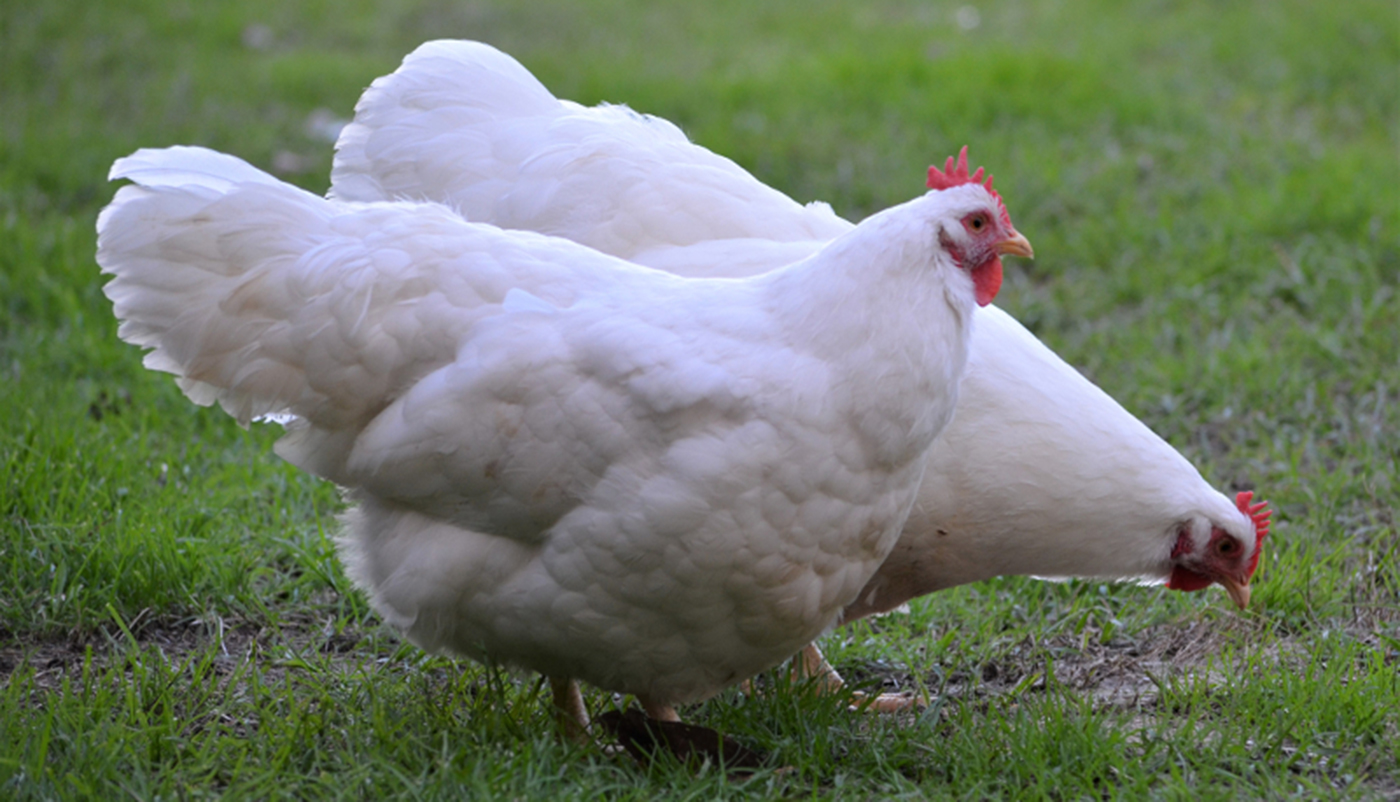 Lamona Chicken Breed – Everything You Need to Know
Lamona Chicken Breed – Everything You Need to Know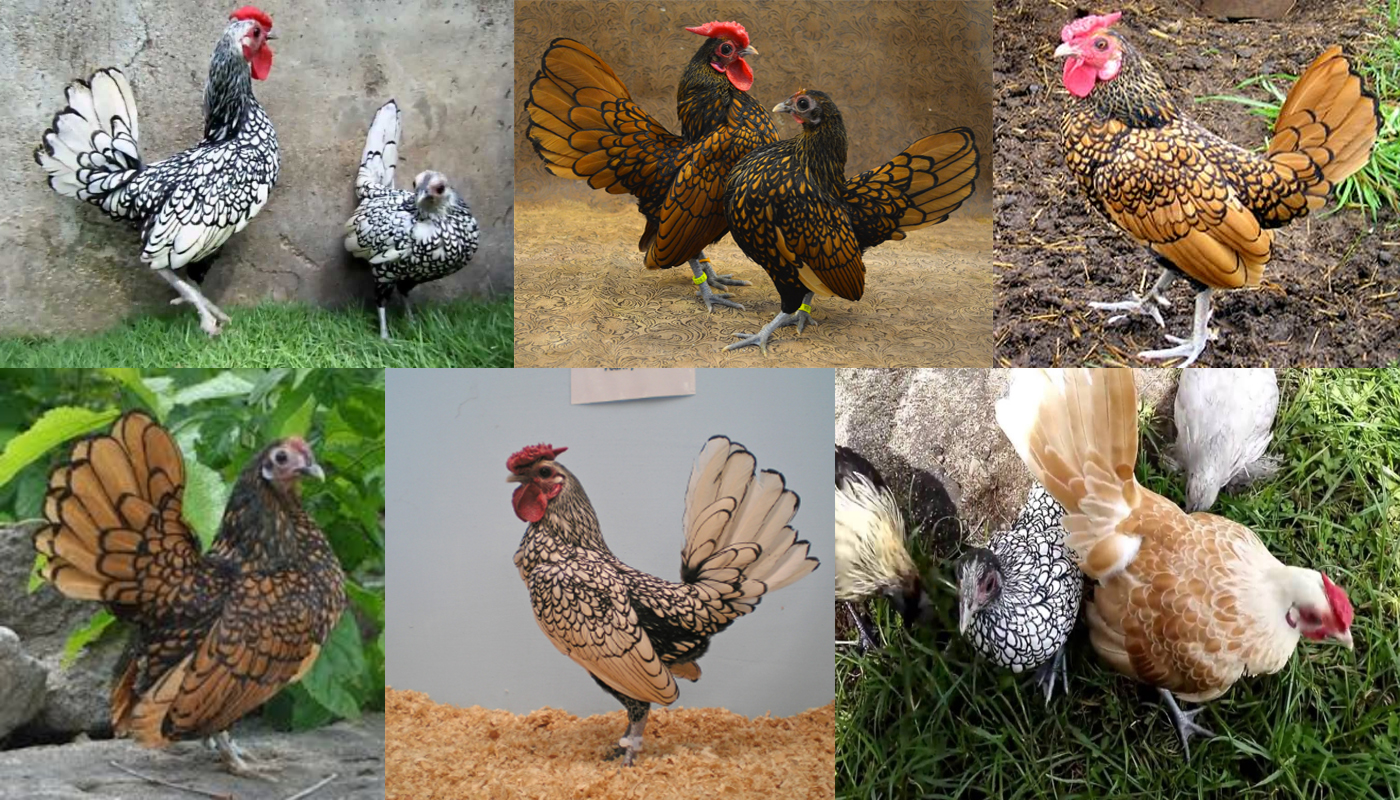 Sebright Chicken Breed – Everything You Need to Know
Sebright Chicken Breed – Everything You Need to Know FACTS ABOUT HATCHING EGGS – HATCHING EGGS PART 4
FACTS ABOUT HATCHING EGGS – HATCHING EGGS PART 4 Dominique Chicken Breed – Everything You Need to Know
Dominique Chicken Breed – Everything You Need to Know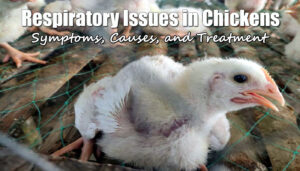 Common Respiratory Issues in Chickens: Symptoms, Causes, and Treatment
Common Respiratory Issues in Chickens: Symptoms, Causes, and Treatment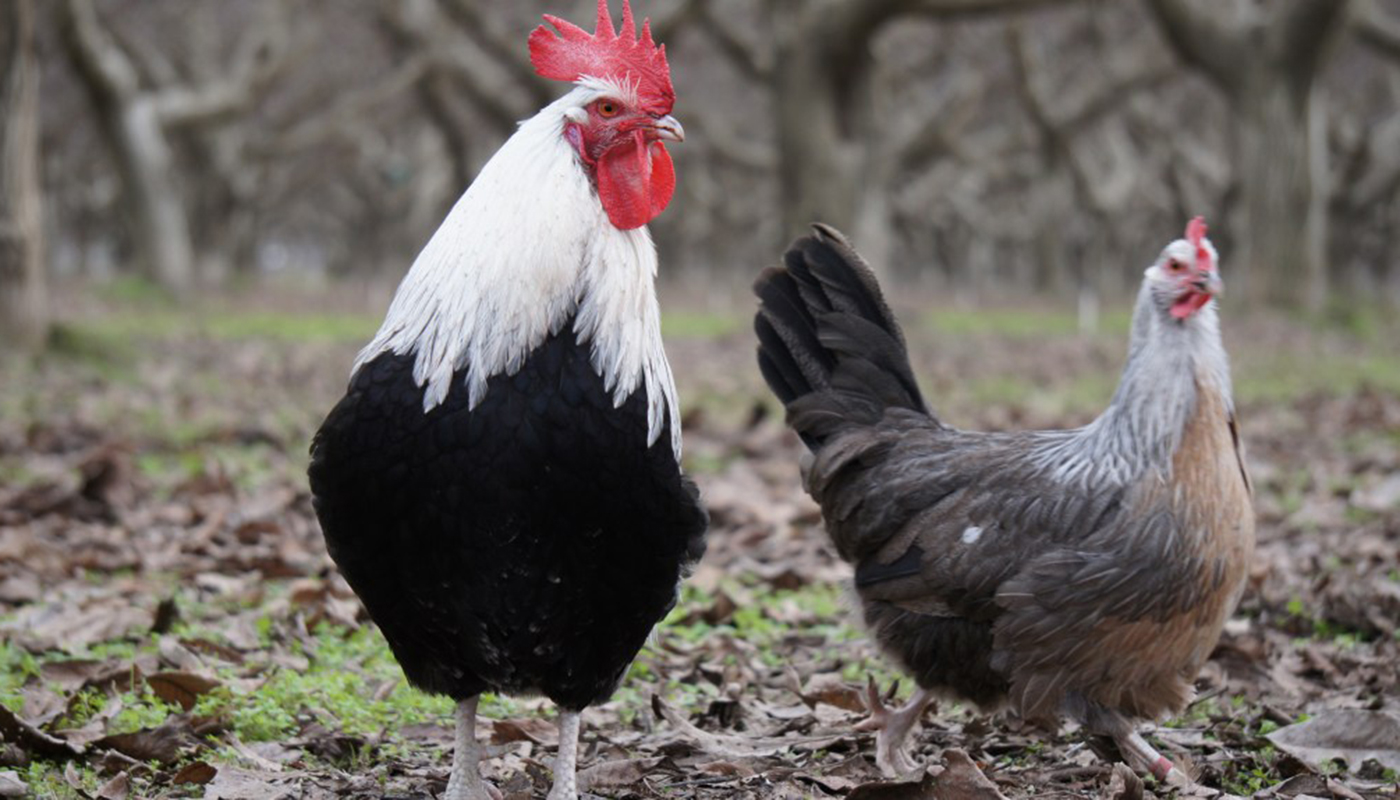 Dorking Chicken Breed – Everything You Need to Know
Dorking Chicken Breed – Everything You Need to Know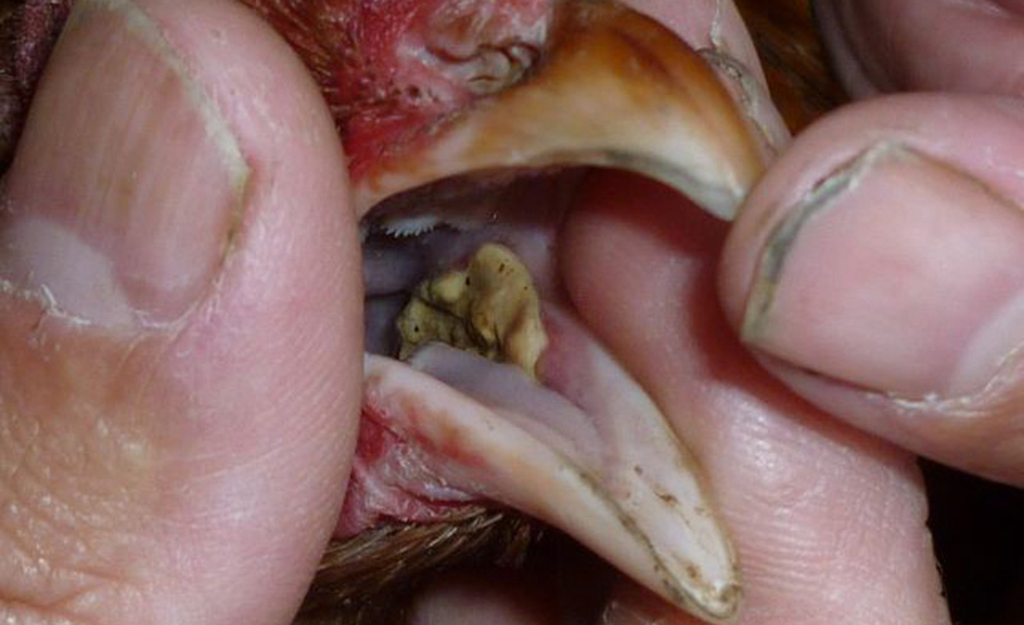 CONDITIONS THAT AFFECT THE DIGESTIVE SYSTEM OF CHICKENS
CONDITIONS THAT AFFECT THE DIGESTIVE SYSTEM OF CHICKENS Sultan Chicken Breed – Everything You Need to Know
Sultan Chicken Breed – Everything You Need to Know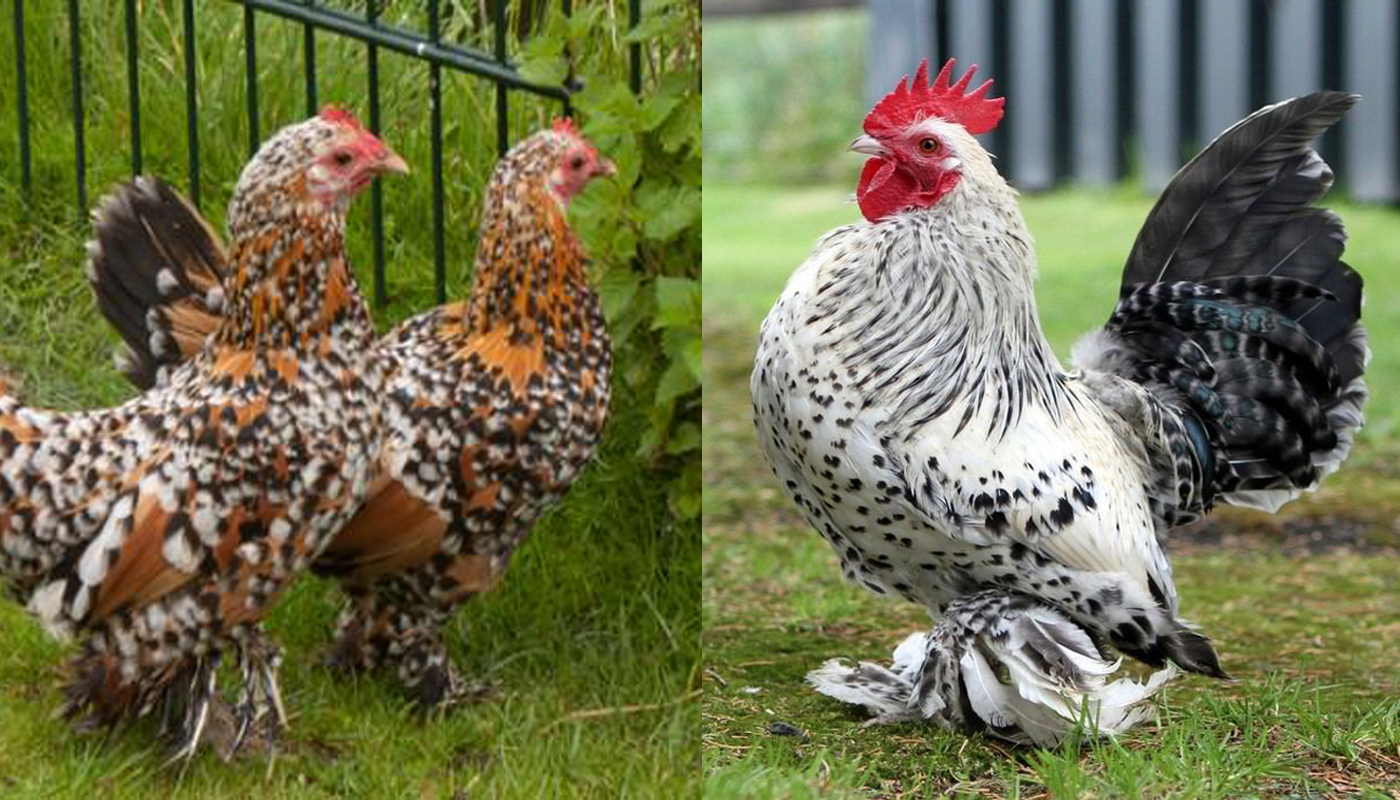 Booted Bantam Chicken Breed – Everything You Need to Know
Booted Bantam Chicken Breed – Everything You Need to Know Marans Chicken Breed – Everything You Need to Know
Marans Chicken Breed – Everything You Need to Know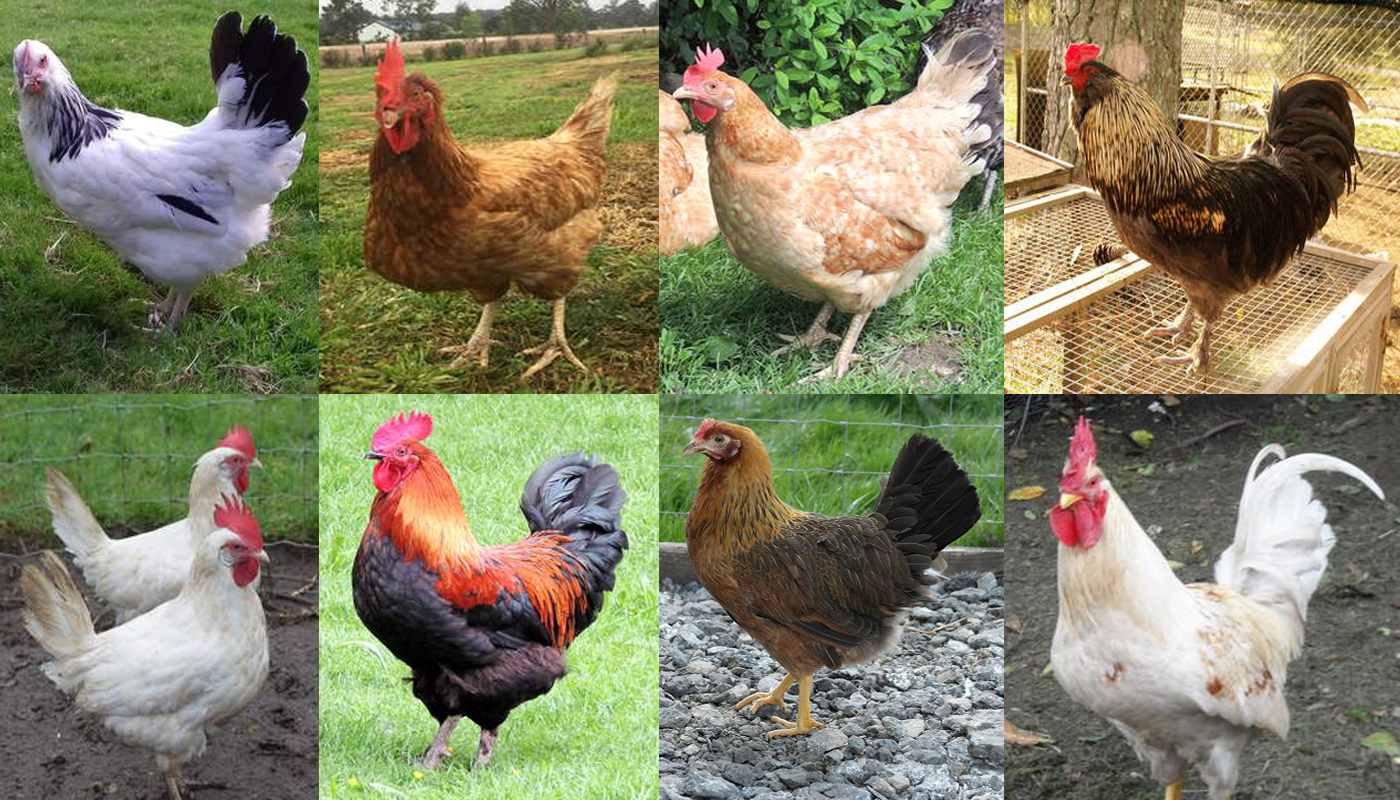 10 Chicken Breeds that Make the Best Starter Chickens for the First Time Poultry Keeper
10 Chicken Breeds that Make the Best Starter Chickens for the First Time Poultry Keeper Chicken Health 101: Breeds That Are Resilient and Low-Maintenance
Chicken Health 101: Breeds That Are Resilient and Low-Maintenance